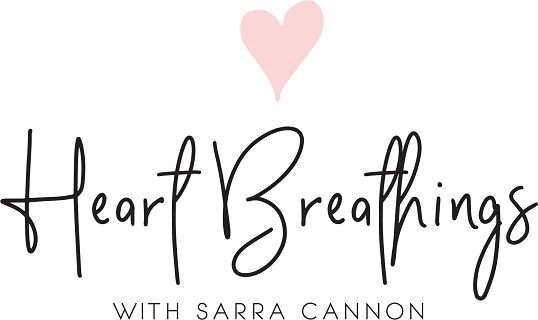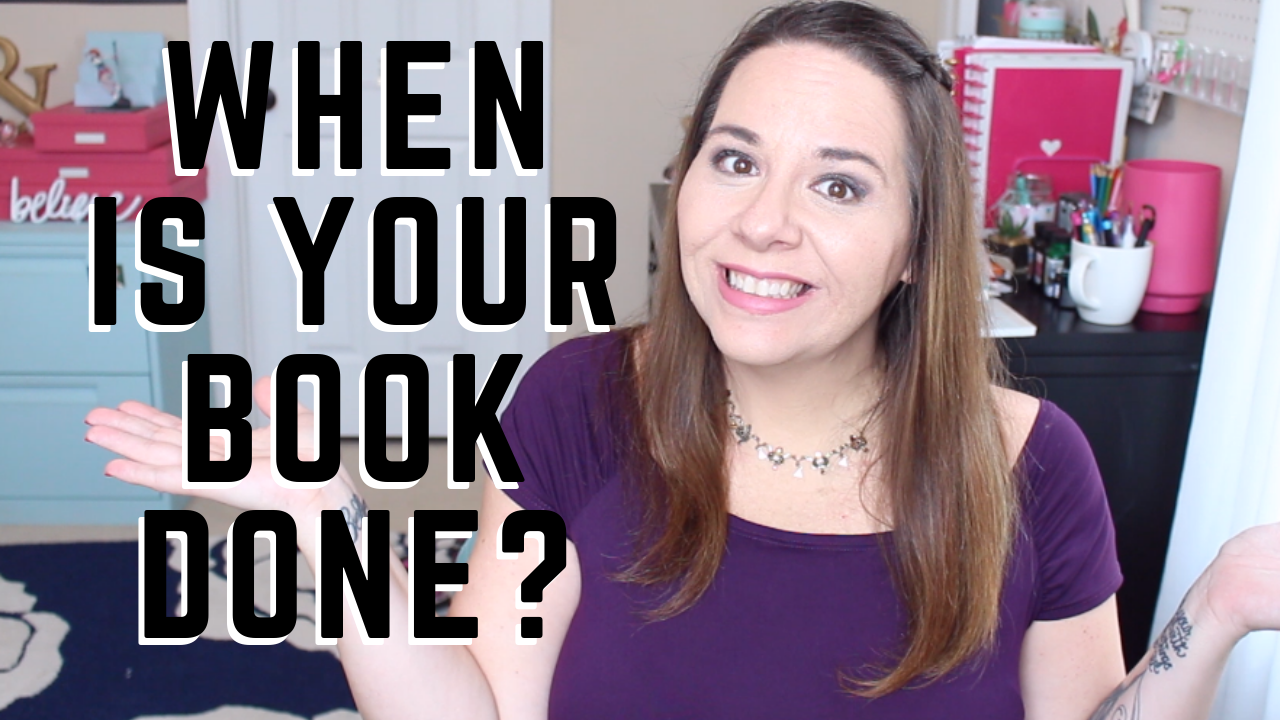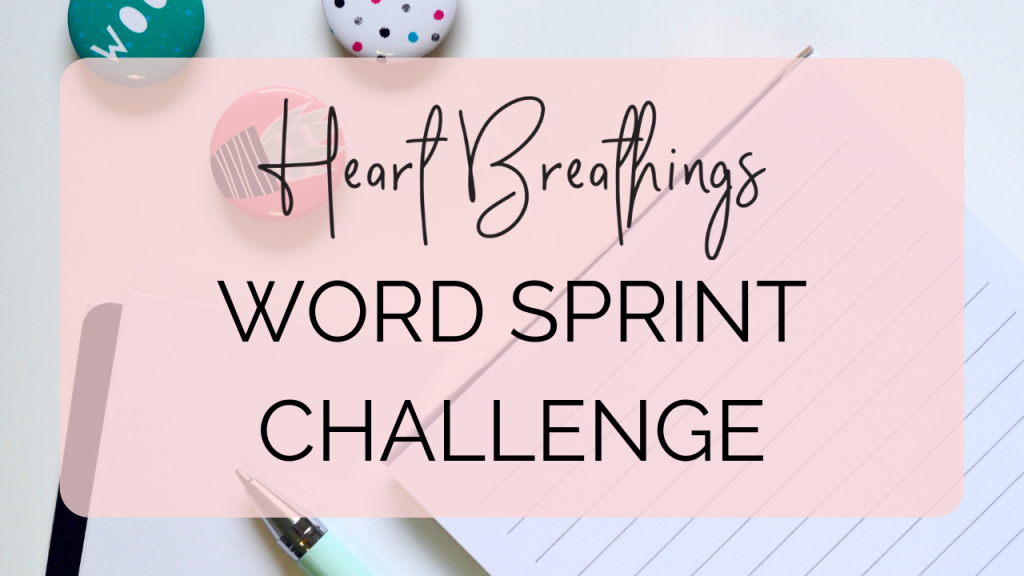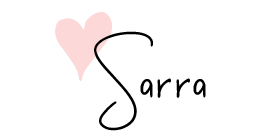

June 6, 2019 by Sarra Cannon
Welcome to the next part of my series on how to edit your novel. Today, we’re going to talk about something that plagues a lot of writers, which is how do you know when your book is actually done?
Sometimes, it’s easy to get caught in an endless editing loop where you work your way through draft after draft of the same novel for months, or even years, changing words, changing scenes, and never knowing if the book is complete.
Today, I have a few pieces of advice after nine years of writing professionally and more than twenty-five novels published.
Part 1: Self-Edits
Part 2: Types of Professional Edits (And Associated Costs)
Part 3: Beta Readers
Part 4: My Recommended Books On Editing
Part 5: How To Know When Your Edits Are Complete
Part 6: How I Organize My Edits
This tip might not be as easy to define, but it’s one of the most powerful things I’ve realized over the years. For me, it’s as if a final piece clicks into place when my book is finished.
I like to compare it to an old tumbler lock on a safe, where you are turning that dial and you suddenly feel it click into place. The safe opens, revealing the treasures inside. It feels right.
Over time and with more and more experience, I believe all writers develop an innate sense of knowing when it comes to whether their books are complete. The only way you can work to develop this intuition within yourself is to keep going.
If you’ve never finished a novel or worked your way through edits, I realize this might be a scary tip, but I promise you that if you keep paying attention to how you feel and how the work itself feels, you will begin to understand deep inside when your book is complete.
For me, this might still mean there are a few lingering typos or word-choice changes that need to happen, but when it all clicks into place, I know the story is there, and that all I can do now is make tiny tweaks here and there. At this point, I go through a final pass or two, making small necessary changes to fix typos or strengthen word choices, but then I know it’s time to let it go.
If you’ve been working on the same story, and all you do each time you work on your book is making a few changes or tweaks to words here and there, you are done with your book.
There comes a point in every story where all we are doing is changing words. We aren’t changing the story or the character arcs or any of the “big” things anymore. It’s just a matter of making it different, but is it really getting better?
If you’ve started to notice that you aren’t making any more significant changes to the story itself, you’re probably ready to move on and let this story go to the next phase in the process.
If you’ve been reading through your novel over and over, and you’ve taken it through all the steps I mentioned in the post/video on self-edits, but you can’t find any way to truly make the story better or stronger, your book is probably done.
Trust me when I say that you will always be able to come back to your work years down the road and realize ways you could have improved it, but unless you want to hold onto your novels for years at a time, there’s no way to gain the knowledge and experience you need without moving onto the next project and continuing to learn by writing more.
When you can’t think of any significant way to make your story better, and all you’re doing is making it slightly different, your book is done.
If you’re someone who has been stuck on the same edits for years, I highly encourage you to set a deadline. Write it down, tell your friends, and commit to being done with your story when the deadline comes. At that point, you can pass the book off to an editor, beta reader, or critique partner, and get feedback from them.
You don’t ever want to rush your story, but sometimes, we allow fear to hold us back. When you’ve been working on the story long enough, and you’re starting to feel sick to your stomach about it, it’s time to set a deadline, do your best to polish it, and then move on.

Another great way to know when the book is done is when you’ve sent it out for feedback and no one comes back to you with major, story-changing suggestions.
If there are major holes in your story or a lot of mistakes that need to be addressed, your manuscript will come back from editors and betas with a ton of comments and red marks. But when you send it out and no one has much to suggest beyond a few word choices here and there, your book is done and you are ready to publish!
How do you judge when your book is complete? Or is this something you’ve been struggling with for a while? Let me know in the comments!
And don’t forget to grab your editing guide below if you haven’t already.
Part 1: Self-Edits
Part 2: Types of Professional Edits (And Associated Costs)
Part 3: Beta Readers
Part 4: My Recommended Books On Editing
Part 5: How To Know When Your Edits Are Complete
Part 6: How I Organize My Edits
I have one other exciting announcement today! Next week, I’ll be running a 5-Day Word Sprint Challenge to help you find your ideal writing time and sprinting length.
What’s more, I’ve started a new word sprint Facebook group I’d love for you to join. Click here to join the challenge, download your free challenge workbook, and get links to join the Facebook group!

Your workbook will have all the details on how it works, but basically, we’ll be experimenting each day next week with different writing times and different sprint lengths. It’s going to be fun and chill, and I hope you’ll join in.
Plus, I have some bonus freebies and coupons for those who participate, even if you can’t be there every day of the challenge.


I have been self-publishing my books since 2010, and in that time, I've sold well over half a million copies of my books. I'm not a superstar or a huge bestseller, but I have built an amazing career that brings me great joy. Here at Heart Breathings, I hope to help you find that same level of success. Let's do this.
I dont understand what you are saying I thought the edotor took care of your mistakes isnt that what you pay him for
An editor suggests changes, but they don’t actually fix or change your manuscript. They comment on your manuscript and tell you what they believe should be changed, but you are the one who has to make the actual changes and edits.